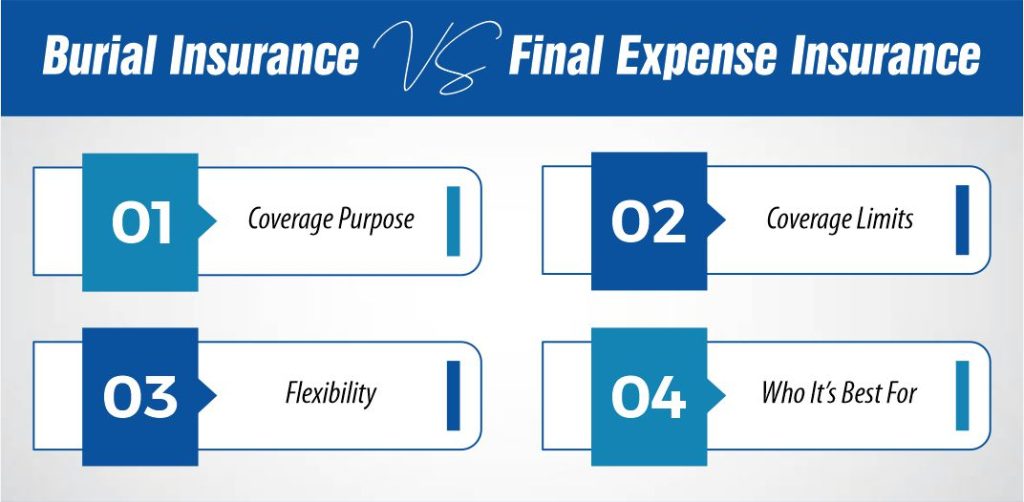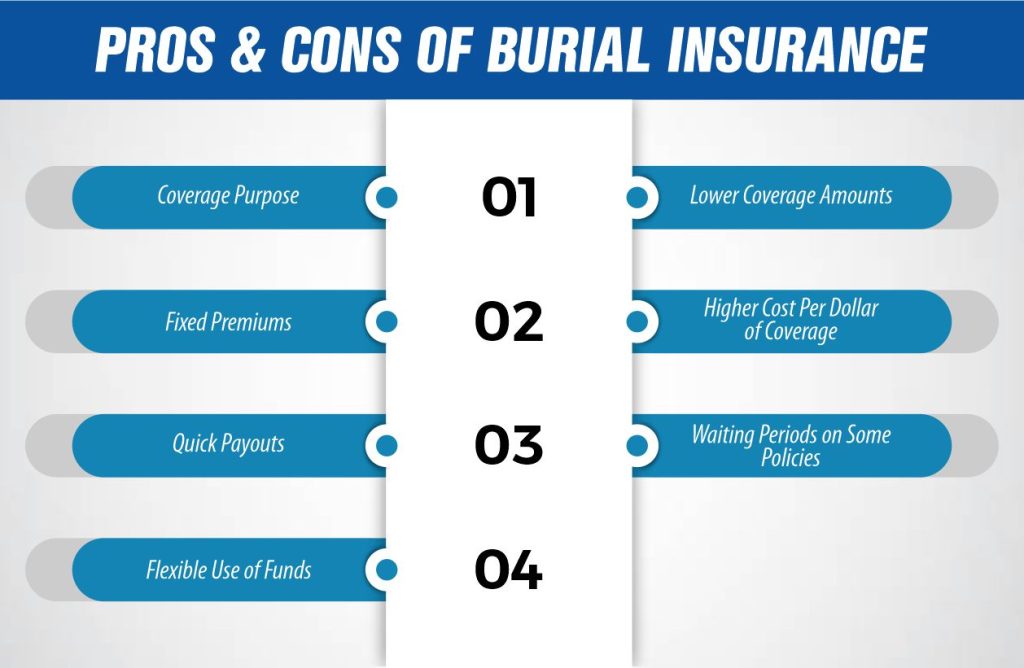Last Updated on: February 13th, 2025
Reviewed by Kyle Wilson

The death of someone important becomes a heavy emotional challenge for families because funeral expenses might create another financial problem at such a difficult time. Leaving behind burial insurance creates a straightforward method that pays for funeral expenses as well as medical costs and other final life expenses without adding financial stress to family members. But first to know What Is Burial Insurance and How Does It Work? Let’s explore the details.
Get Free Quotes
Customized Options Await
The insurance has been developed as a specific life insurance plan to pay expenses which occur after a person dies. This form of insurance provides limited compensation which specifically covers funeral expenditures together with health costs and minor unpaid expenses. The insurance coverage protects family members from dealing with unexpected financial problems while they mourn their deceased loved one.
When people purchase burial insurance policies the money covers expenses for a coffin and cremation services and burial site purchases together with burial ceremonies. The financial payout from burial insurance enables beneficiaries to cover outstanding medical bills together with debts and necessary end-of-life costs following death. The payment from burial insurance proceeds to beneficiaries comes in cash form which beneficiaries can utilize according to their needs.
Burial insurance provides a suitable coverage solution for elderly individuals or people with small savings and people who lack conventional life insurance. Humans who desire funeral expense coverage for their passing without creating financial difficulties for their relatives benefit from this kind of insurance. People who have medical issues that prevent them from obtaining standard life insurance policies can use burial insurance as a feasible coverage alternative.
This straightforward policy gives people access to a single benefit payment for managing their final costs through burial expenses. The limited coverage of burial insurance helps people with health issues to obtain coverage because the policy levels are more attainable. Burial insurance operates as whole life coverage that continues to exist whenever premiums get paid.
Exclusively offered to manage funeral expenses and small debts these insurance policies maintain set premium costs which never go up. The payout offered by this insurance ranges between $5,000 to $25,000 to handle funeral expenses alongside small debts. The absence of medical tests makes burial insurance an easily accessible choice for both elderly individuals and people with medical history.
The process to obtain burial insurance features an easy application procedure. Burial insurance providers request a brief health questionnaire from applicants instead of demanding a full medical examination. Applications require customers to select their insurance benefits before insurers establish their rates by considering applicant health status and age as well as their internal procedures. The insurance policy exists for its duration when premium payments maintain an active status.
Insurance beneficiaries must submit their claim requests to the insurance provider after the policyholder passes away. Policyholders’ beneficiaries can obtain payouts through timeframes of less than a month after sending required documents like death certificates to the insurance provider. The process enables beneficiaries to obtain necessary financial support at a faster pace.
Many people seek to understand what distinguishes burial insurance from other life insurance varieties. Monetary assistance from financial policies exists in all life insurance plans yet burial insurance serves only for funeral expenses. The knowledge of differences will support people in selecting the proper insurance policy for their requirements.
The purposes of burial insurance and final expense insurance are identical because they relieve family members financially when facing grief. Financial coverage selection depends on personal requirements as well as the extent of coverage an individual requires.

Multiple elements determine burial insurance cost yet the premiums remain less expensive than standard life insurance rates. Its minimal coverage benefits make burial insurance an economical solution for covering funeral expenses together with other death-related costs. People who want to select the appropriate insurance policy need to understand which factors determine its price.
The cost of burial insurance increases with age. Below is a general estimate of monthly premiums based on age for a $10,000 policy:
Premium rates can vary based on the insurer, health status, and policy features. To secure the best rates, it is often recommended to purchase burial insurance at a younger age.
People find burial insurance serves as a useful option which guarantees coverage for funeral costs at the end of life. A policy holds both strengths and weaknesses as a financial product which need to be analyzed thoroughly before making a purchase.

The process of finding suitable burial insurance involves considering both expense and protection and quality of provider companies.
Insurance providers known for their reputation offer burial insurance plans at reasonable prices with added benefits to clients. Some top providers include:
Burial insurance serves as a solution to maintain funeral costs together with small debts from becoming financial stressors for family members after death. The insurance features an effortless application process and sets premium rates and delivers payment benefits promptly. The process of finding suitable burial insurance requires individuals to check multiple policies with different providers to select an option that balances their requirements against their financial situation.
The insurance policy known as burial insurance functions as life insurance because it provides benefits for end-of-life expenditures. Traditional life insurance differs from burial insurance which provides lower benefits and simpler qualification processes.
The optimal period to buy burial insurance falls within the age range from 50 to 65 because younger applicants receive more affordable rates. The advantage of purchasing burial insurance at a young age is the reduced expense as well as superior coverage benefits.
You can find burial insurance policies at many providers which accept all applicants without conducting medical exams. Full insurance benefits under certain burial policies usually become accessible after a waiting period.
Senior Writer & Licensed Life Insurance Agent
Iqra is a dynamic and insightful senior writer with a passion for life insurance and financial planning. With over 8 years of hands-on experience in the insurance industry, Iqra has earned a reputation for delivering clear, actionable advice that empowers individuals to make informed decisions about their financial future. At Burial Senior Insurance, she not only excels as a licensed insurance agent but also as a trusted guide who has successfully advised over +1500 clients, helping them navigate the often complex world of life insurance and annuities. Her articles have been featured in top-tier financial publications, making her a respected voice in the industry.

Burial Senior Insurance provides information and services related to burial insurance for senior citizens, including policy options and end-of-life support services.
Copyright © Burial Senior Insurance 2025. All Right Reserved.

Get Free Life Insurance Quotes